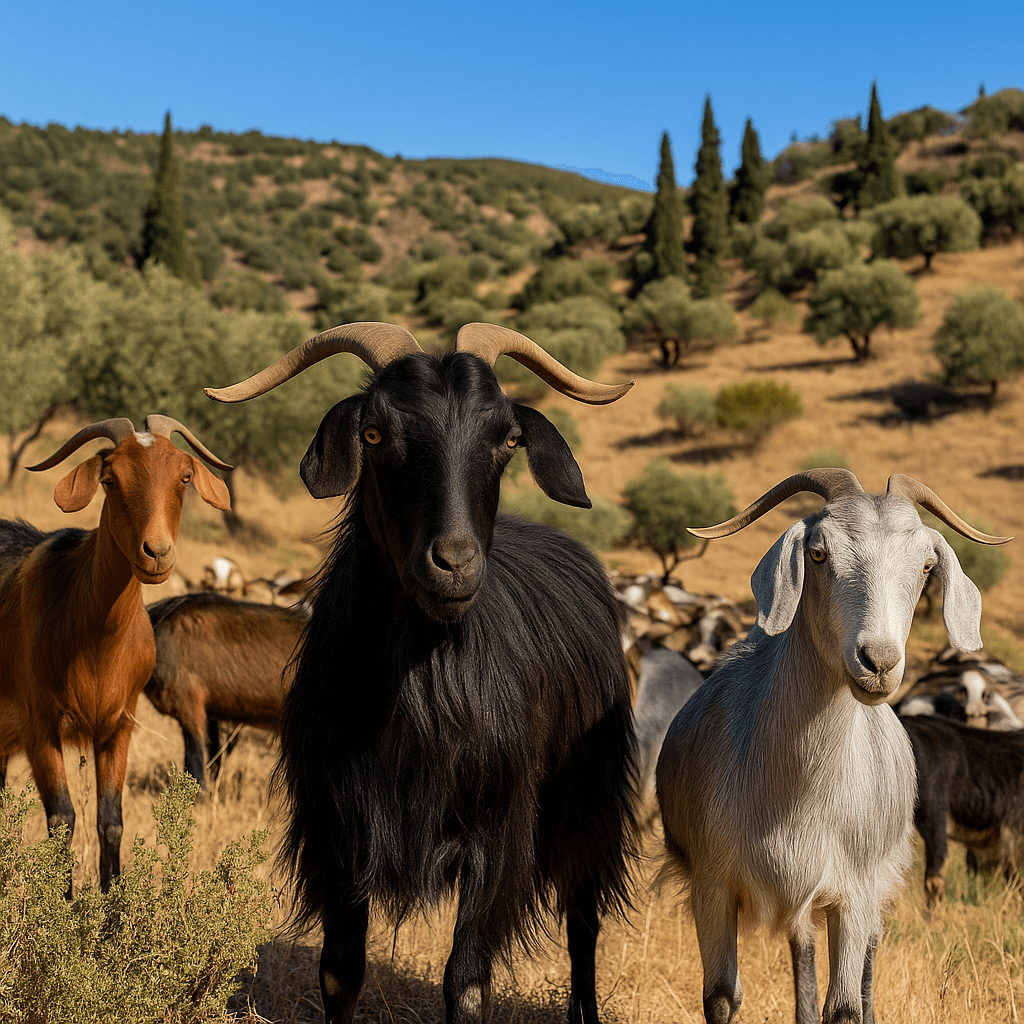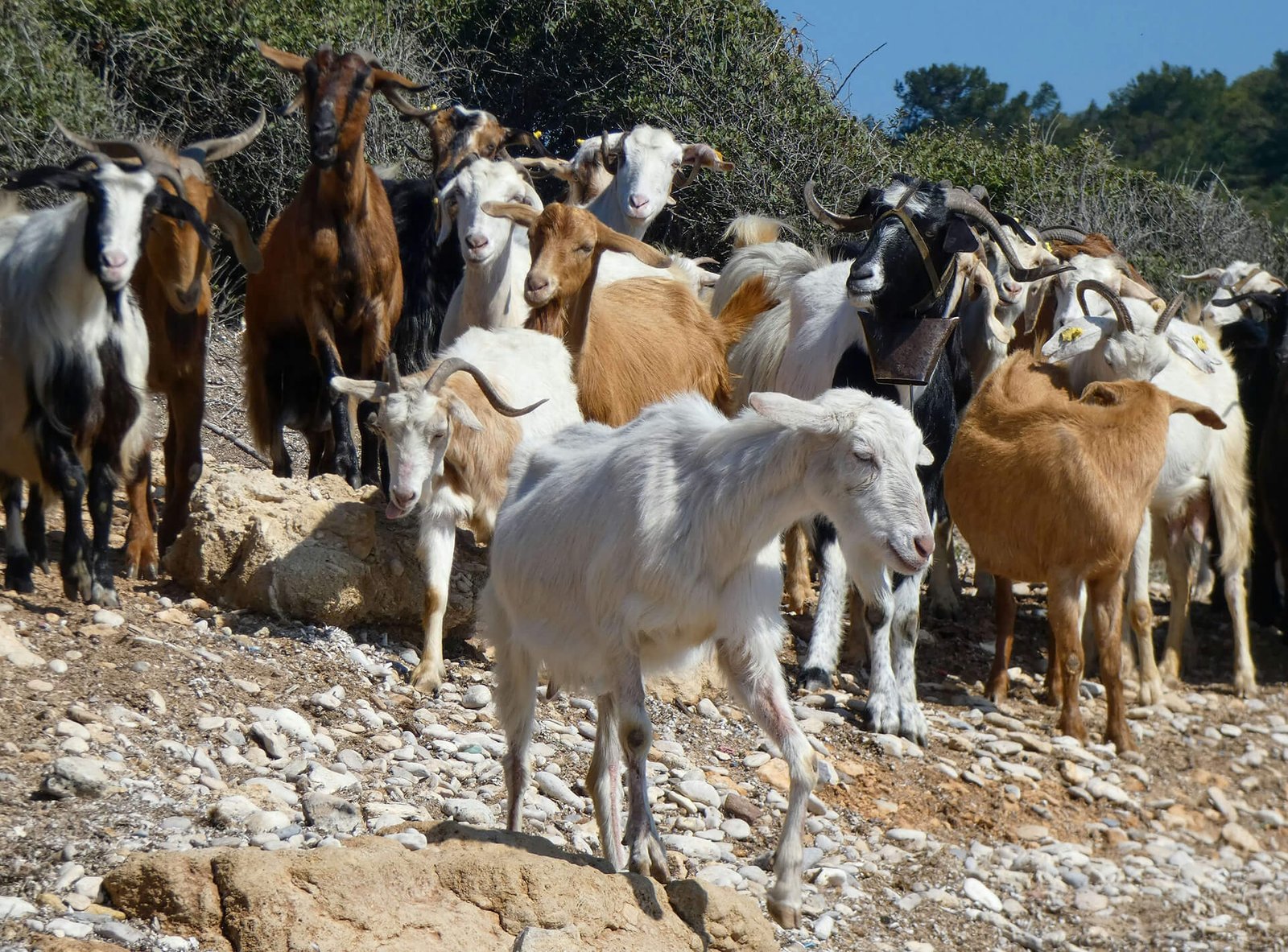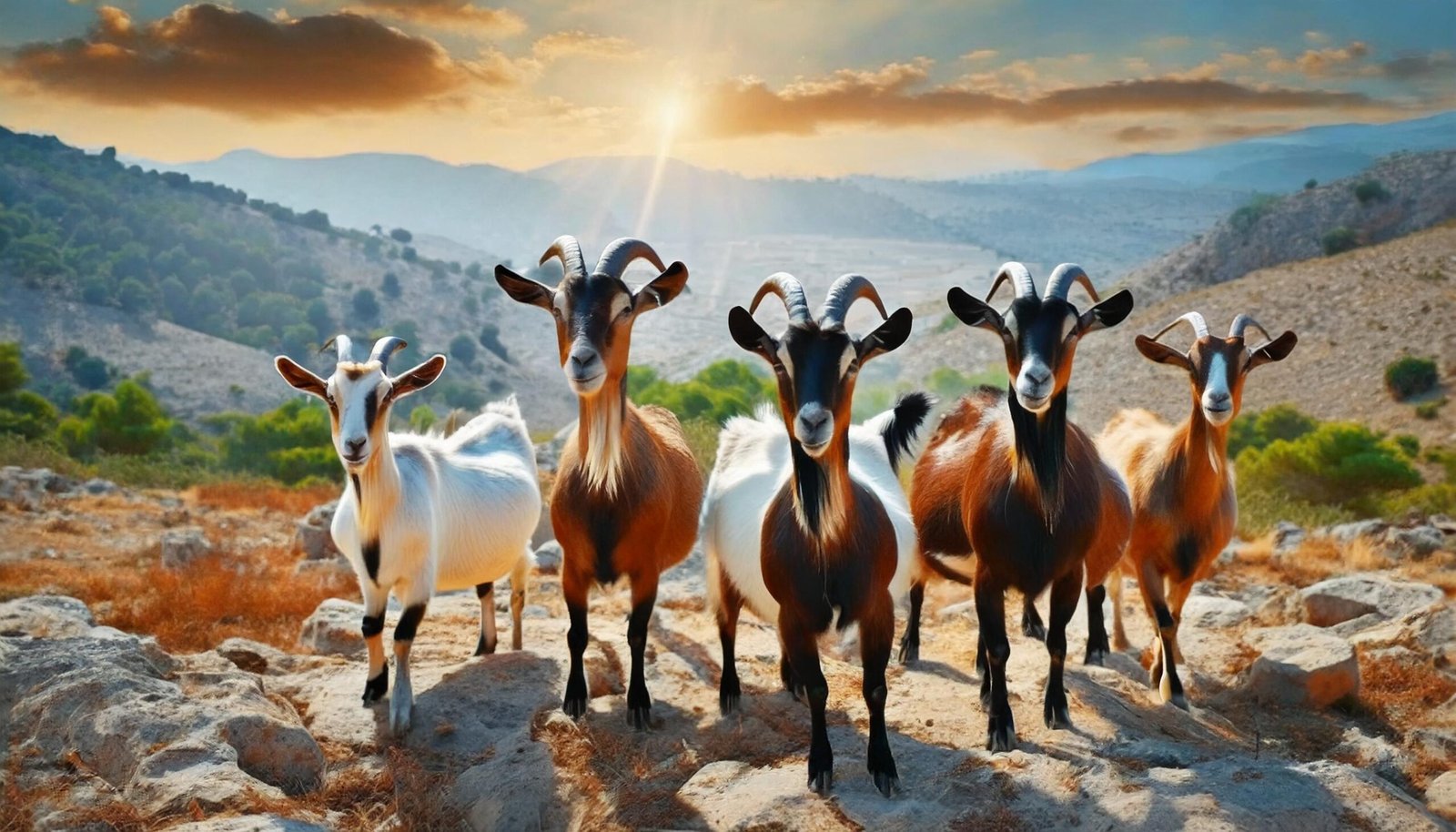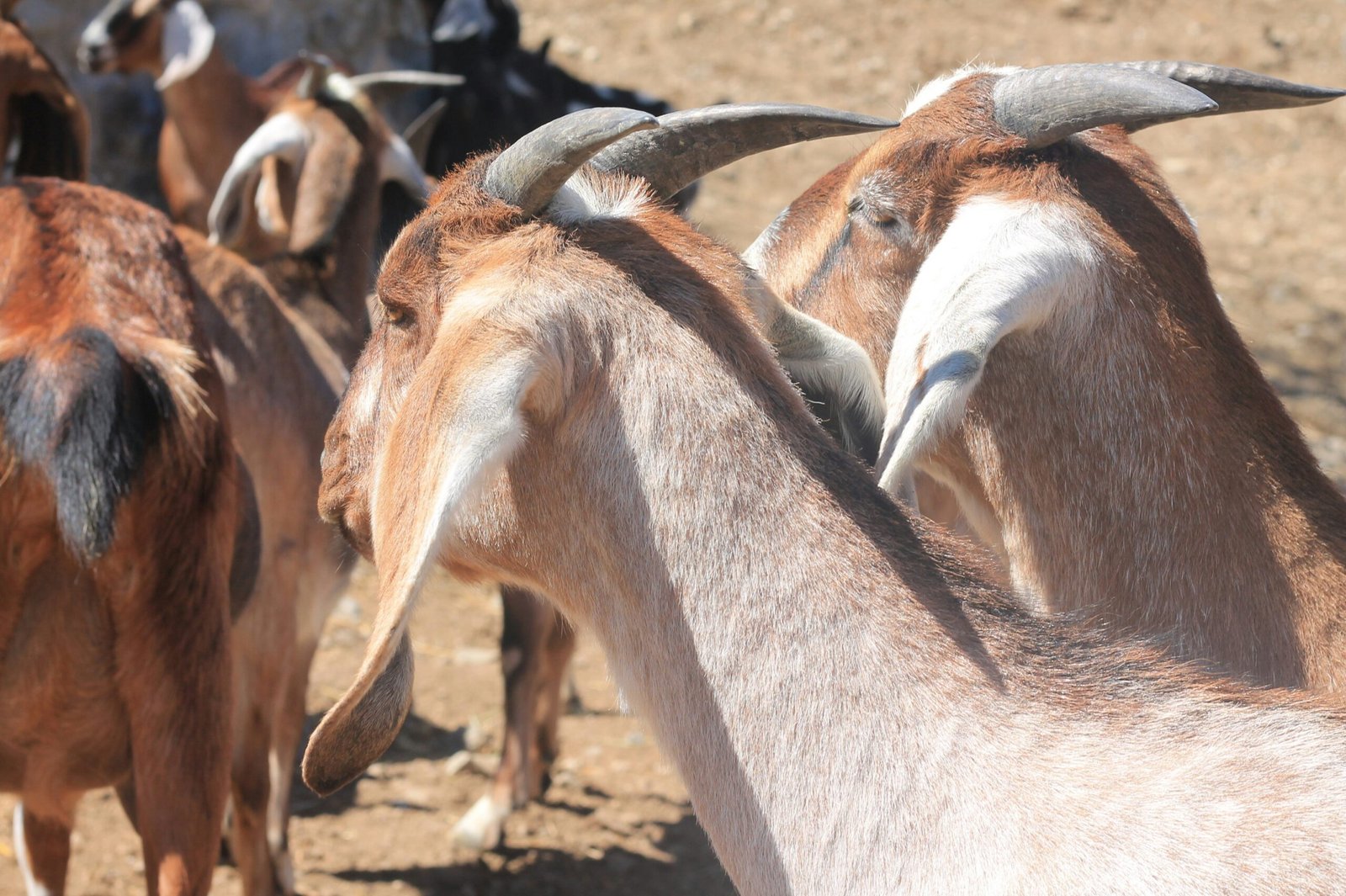Sardinia, the second-largest island in the Mediterranean Sea, is famous not only for its stunning landscapes and rich cultural heritage but also for its thriving livestock sector. Among the island’s prized breeds, the Sarda goat stands out for its adaptability and high-quality milk, which contributes to some of the region’s most renowned dairy products. Yet, like many rural communities across Europe, Sardinian farmers face the dual challenge of preserving traditional practices while adapting to modern market demands and sustainability goals.
To bridge this gap, a pioneering initiative titled Youth-Driven Innovation in Sardinia has taken root since 2020. This use case explores how youth-led agritech labs are revitalizing Sarda goat farming through digital tools, research hubs, and local startup ecosystems, all designed to boost milk productivity, increase economic resilience, and strengthen Sardinia’s position as a leader in sustainable goat farming.
The Sarda Goat: A Cornerstone of Sardinian Agriculture
The Sarda goat is perfectly suited to the island’s rugged terrain and diverse pastures. Traditionally raised under extensive grazing systems, this hardy breed contributes significantly to local cheese-making traditions and rural livelihoods. A well-managed herd of Sarda goats can achieve an impressive milk yield of around 130 liters per month, providing both nutritional security and a steady income stream for family farms.
However, younger generations in Sardinia have often migrated to urban centers in search of better opportunities, leaving behind aging farm populations and underutilized agricultural potential. To counter this trend, the Youth-Driven Innovation initiative aims to attract young talent back to agriculture, equipping them with cutting-edge technologies and entrepreneurial skills to reimagine goat farming for the 21st century.
What Are Youth-Led Agritech Labs?
At the heart of this project are agritech labs — collaborative hubs where young farmers, students, researchers, and tech enthusiasts come together to co-create solutions tailored to local agricultural needs. These labs function as incubators for experimentation, knowledge sharing, and startup development.
In Sardinia, these youth-led labs focus on:
- Precision livestock monitoring: Using sensors, drones, and AI to track goat health, grazing patterns, and milk production.
- Data-driven breeding: Analyzing genetic data to improve herd resilience and milk quality.
- Sustainable feed innovation: Testing new forage mixes and rotational grazing plans to maximize pasture health.
- Value-added dairy processing: Developing artisanal and premium dairy products that meet modern consumer tastes while preserving local heritage.
The labs also serve as training centers, equipping rural youth with digital literacy, business planning skills, and practical know-how to launch agritech startups or modernize family farms.
How the Initiative Works in Practice
Since its launch in 2020, the initiative has partnered with local universities, agricultural cooperatives, and Sardinian youth organizations. Smallholder farms volunteer as pilot sites where students and young entrepreneurs test and refine new tools under real farming conditions.
Some of the standout innovations include:
- Wearable Goat Trackers: Small, solar-powered devices attached to goats’ collars that monitor location, activity levels, and feeding times. This information helps herders adjust grazing plans and quickly detect health issues.
- Remote Sensing for Pastures: Drones and satellite imagery provide up-to-date data on pasture biomass, soil moisture, and erosion risks. This enables smarter decisions about when and where to graze, promoting regenerative land management.
- Mobile Apps for Cooperative Management: Apps allow farmers to track milk yields, input costs, and cooperative deliveries, streamlining operations and improving transparency across the supply chain.
By integrating traditional herding wisdom with real-time data, Sardinian farmers can ensure that their goats are healthier, their pastures are more productive, and their dairy products consistently meet quality standards.
Empowering Sardinian Youth
A core mission of the Youth-Driven Innovation project is to make agriculture an attractive and rewarding career path for Sardinia’s youth. Through hands-on learning in agritech labs, young people gain valuable skills that open doors to roles as digital farm managers, agricultural technologists, or rural entrepreneurs.
This approach directly addresses the rural youth unemployment challenge while fostering a new generation of local leaders committed to sustainable food systems. Many lab participants have gone on to launch micro-enterprises focused on eco-friendly dairy processing, agritourism, and digital farm services.
Improving Productivity and Sustainability
Increased milk productivity is a measurable benefit of the labs’ innovations. Pilot farms have reported improvements in average milk yields reaching 130 liters per month, thanks to better nutrition planning and early detection of animal health issues.
Additionally, the initiative actively promotes sustainability, aiming for a sustainability score of 7 across all participating farms. Key sustainability practices include:
- Rotational grazing and soil regeneration: Reducing overgrazing to restore pasture biodiversity and soil carbon.
- Waste minimization: Using goat manure for composting and biogas production.
- Energy-efficient dairies: Encouraging farms to adopt solar panels and low-energy cooling systems for milk storage.
Through these practices, Sardinian goat farms contribute to EU climate goals and the broader Mediterranean commitment to sustainable rural development.
Community Impact and Cultural Revival
Beyond economic gains, the Youth-Driven Innovation initiative is sparking a cultural revival in Sardinian villages. By blending modern technologies with age-old pastoral traditions, young people are redefining what it means to be a shepherd in the digital age.
Community events, open farm days, and agritech festivals showcase these successes, helping to reshape public perceptions about farming and highlight the value of local products. Local schools now partner with agritech labs to introduce agricultural science and entrepreneurship into their curricula, inspiring the next generation.
Overcoming Challenges
Implementing youth-led innovation in rural Sardinia has not been without hurdles:
- Access to Funding: Initial investments for lab equipment, sensors, and drones require upfront capital that many small farms lack. Regional grants and EU rural development funds have played a vital role in addressing this barrier.
- Connectivity Issues: In remote Sardinian pastures, reliable internet access can be limited. Some labs have experimented with mesh networks and satellite connections to keep data flowing.
- Changing Mindsets: Encouraging older generations to trust young people’s ideas and adopt new technologies sometimes requires patience and strong community facilitation.
These challenges have provided valuable lessons for scaling up and ensuring long-term sustainability.
Replicability and Future Outlook
The Sardinian pilot has attracted interest from other regions in Italy and across Southern Europe. Plans are underway to establish sister agritech labs focusing on different livestock systems, crops, and value chains, using the Sardinian model as a blueprint.
Key future goals include:
- Scaling Up Digital Infrastructure: Expanding broadband coverage and IoT networks in rural areas.
- Developing Local Certification Labels: Highlighting products made by farms participating in youth-led labs to appeal to conscious consumers.
- Strengthening Policy Support: Advocating for more EU and national policies that incentivize youth entrepreneurship and technological innovation in agriculture.
With continued investment and collaboration, Sardinia aims to become a showcase region for how youth-driven agritech ecosystems can secure the future of traditional breeds like the Sarda goat while building climate-smart and resilient rural economies.
A New Generation of Shepherds
The Youth-Driven Innovation in Sardinia story is a testament to the power of young people to transform challenges into opportunities. By harnessing their creativity, technological savvy, and deep respect for Sardinian culture, these young innovators are ensuring that goat farming remains a vibrant part of the island’s identity and prosperity.
Through this project, Sardinia demonstrates that rural regeneration, youth empowerment, and sustainable livestock farming are not just aspirations but achievable realities — when tradition and innovation walk side by side.





